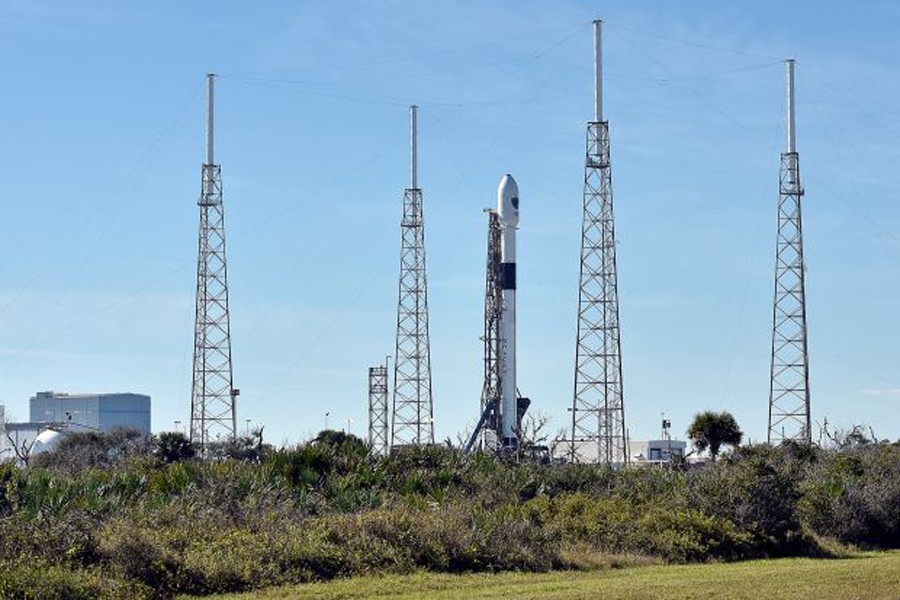Elon Musk’s SpaceX scrapped Saturday’s launch of a long-delayed navigation satellite for the US military due to strong upper level winds.
The next launch attempt will be on Sunday at 8:51 a.m. EST/ 13:51 UTC, according to Space X officials.
The launch, SpaceX’s fourth attempt in a week after technical and weather delays, would have been the rocket firm’s first national security space mission for the United States. Musk’s rocket company has spent years trying to break into the lucrative market for military space launches long-dominated by Lockheed and Boeing Co (BA.N).
SpaceX sued the US Air Force in 2014 in protest over the military’s award of a multibillion-dollar, non-compete contract for 36 rocket launches to United Launch Alliance, a partnership of Boeing and Lockheed. It dropped the lawsuit in 2015 after the Air Force agreed to open up competition.
The next year, SpaceX won an $83 million Air Force contract to launch the GPS III satellite, which will have a lifespan of 15 years, according to Reuters news agency.
The launch would be the first of 32 satellites in production by Lockheed under contracts worth a combined $12.6 billion for the Air Force GPS III program, Lockheed spokesman Chip Eschenfelder said.
Air Force spokesman William Russell said: “Once fully operational, this latest generation of GPS satellites will bring new capabilities to users, including three times greater accuracy and up to eight times the anti-jamming capabilities.”
The launch was originally scheduled for 2014 but has been hobbled by production delays, the Air Force said.
It would have marked SpaceX’s first so-called National Security Space mission, as defined by the US military, SpaceX said.
The next GPS III satellite is due to launch in mid-2019, Eschenfelder said, while subsequent satellites undergo testing in the company’s Colorado processing facility.


